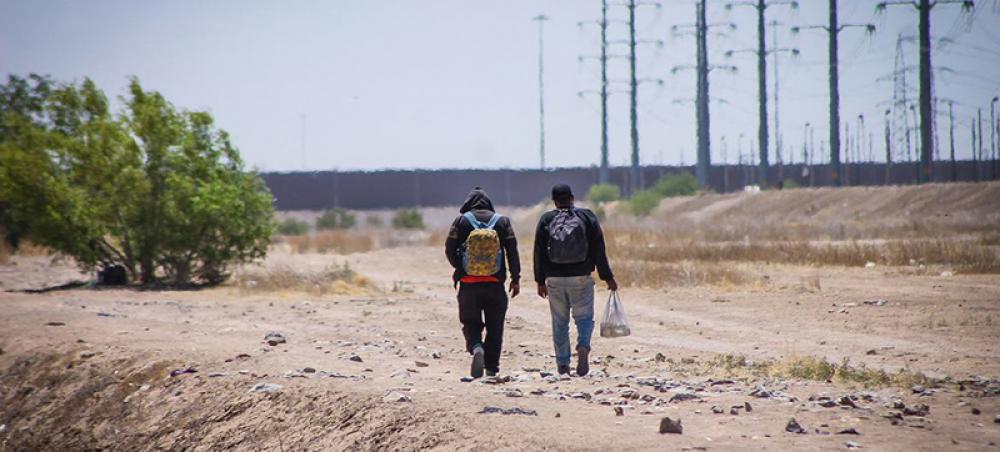Just Earth News | @justearthnews | 13 Sep 2023

Image: IOM/Camilo Cruz
The United States-Mexico border is the world’s deadliest land route for migrants, with at least 686 deaths and disappearances last year, the UN migration agency (IOM) said on Tuesday.
Nearly half of the deaths on the border were linked to the hazardous crossing of the Sonoran and Chihuahuan Deserts.
“These alarming figures are a stark reminder of the need for decisive action by States,” said Michele Klein Solomon, IOM’s Regional Director for Central and North America and the Caribbean.
“Enhancing data collection is crucial. Ultimately, what is needed is for countries to act on the data to ensure safe, regular migration routes are accessible.”
Throughout the Americas, 1,457 migrant deaths and disappearances were recorded in 2022, the deadliest year on record, according to IOM.
Lack of proper data
However, these figures represent the “lowest estimates” available as many deaths were likely not recorded due to lack of data.
Other concerning trends in the Americas included an over 42 per cent increase in deaths on migration routes in the Caribbean last year and the continuing dramatic situation at the Darien Gap.
The especially dangerous jungle border crossing between Panama and Colombia saw 141 documented migrant deaths in 2022.
The UN agency revealed that according to its surveys of people who attempted that crossing, one in 25 reported that someone they were traveling with had gone missing.
‘Profound’ impact on families
“The fact that we know so little about migrants who disappear in the Americas is a grim reality,” said Marcelo Pisani, IOM Regional Director for South America.
“The impacts on the families left behind to search endlessly for a lost loved one are profound.”
Agencies, including IOM and the UN refugee agency (UNHCR) have been advocating for a “collaborative, comprehensive and regional approach” in responding to humanitarian and protection needs of people on the move across the whole region.